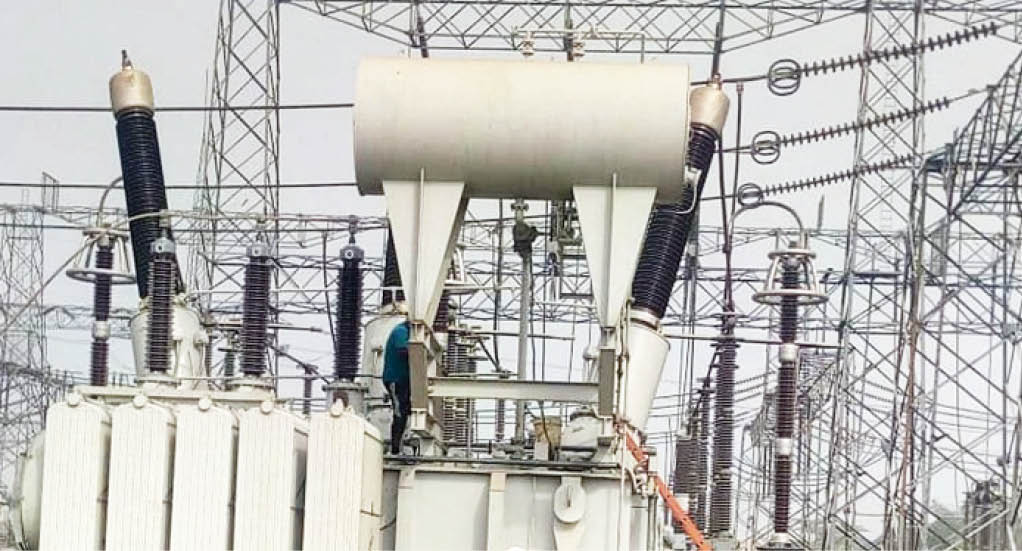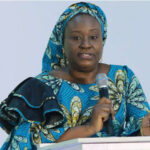The federal government, in 2021, coughed out N247 billion to the power sector as an intervention fund to mitigate the endless liquidity crisis affecting the industry and keep electricity generation and supply going, records have shown.
This intervention, known as the Payment Assurance Facility (PAF), was issued by the Nigerian Bulk Electricity Trading Plc (NBET) to augment payment from the Distribution Companies (DisCos) to about 23 Generation Companies (GenCos) for 12 months.
- Teenager attempts suicide over N4,000 debt in Kano
- LCCI asks FG to borrow from cheaper sources, consider deficit financing
According to the Daily Trust analysis of 16 months of power generation invoices and payment data obtained from NBET, from January 2022, there was no further subsidy to the GenCos’ payments.
Our observations of the energy trend since January shows that power generation plunged below average.
According to records from the Independent System Operations (ISO), the power grid dropped to the 3,500 megawatts (MW) range for most of the time between January and April, and at times, the 2,500MW range.
The low generation has triggered five system collapses so far in 2022, more than the four recorded in 2021.
Consumers used N1trn electricity in 16 months
Over 10 million registered consumers in Nigeria might have used electricity worth N1.091trn in 16 months between January 2021, and April 2022, according to the payment invoices submitted by the GenCos to NBET and reviewed by Daily Trust.
The 11 DisCos, which got the electricity and supplied it to their customers paid N600.9bn of the invoices, leaving a N490.1bn shortfall, a common problem in the industry requiring government intervention to prevent system collapse.
To avoid a shutdown in operations due to the N490bn backlog, NBET, through the Central Bank of Nigeria (CBN), intervened with PAF and expended N247bn in 2021.
This intervention raised the Nigerian Electricity Market (NEM) payment to the GenCos to N847.8bn for the 16 months.
However, there is still a shortfall of N243.2bn that was not paid to the GenCos.
Without subsidy, energy payment plummets
According to the monthly payment trend, just one of the GenCos, Azura in Edo State, got 100 per cent payment for its invoices. Azura, which is among the few contemporary power plants to be built has an active Power Purchase Agreement (PPA) with NBET, and a sovereign guarantee/World Bank Partial Risk Guarantee (PRG) that compels the government to pay for all energy it generates in full or get compensated through the instruments.
However, that was sustained for nine months in 2021 as a default set in from October when it got 48 per cent of its expected payment. The payment, it was learnt, dropped, based on its reduced power generation and mutual agreement to play in the Nigerian electricity market.
For the 22 other GenCos, the payment trend was strongly positive at 90 per cent and 98 per cent levels from January to May 2021. It dropped to 80 per cent for June and July, plunged to 70 per cent range from August to November and to 68 per cent in December 2021.
By January 2022 when the government stopped the PAF intervention with funds going to the GenCos from only the DisCos, the market payment crashed to 50.8 per cent but slightly improved to 59.82 per cent in February. The payment dropped to 48.35 per cent in March before rising to 60.62 per cent in April 2022, the data indicated.
On invoice to payment ratio, the GenCos had the highest monthly invoice in May 2021 at N73.3bn but were paid 90.3 per cent (N67.6bn) of that while the market made the best payment of 98 per cent (N70.7bn) to the GenCos for a N71.3bn invoice in January 2021. The lowest payment to the GenCos was N31.2bn representing 48.3 per cent of their March 2021 invoice.
In March 2022, the Minister of Finance, Zainab Ahmed, revealed how the federal government quietly removed the subsidy on electricity tariff by carefully raising the electricity tariff at some levels.
“We have been able to quietly implement subsidy removal in the electricity sector and as we speak, we don’t have subsidies in the electricity sector. We did that incrementally over time by carefully adjusting the prices at some levels while holding the lower levels down,” Ahmed had noted.
Chairman of the Nigerian Electricity Regulatory Commission (NERC), Engr Sanusi Garba, in May 2022, said the current electricity tariff charged by DisCos was approved in December 2021, implemented in February 2022 and will continue until December when inside sources said there may be another electricity tariff raise to improve funding for the power sector.
GenCos worried over poor payment
Shortly before a major system collapse in March this year, the Association of Power Generation Companies (APGC), decried the high energy debt owed the GenCos, noting that the firms may soon run out of business.
The Executive Secretary of APGC, Dr Joy Ogaji, said while the GenCos have not been paid N1.64trn as capacity charge since 2015, NBET does not also pay the GenCos the full monthly energy charge. The implication, according to her, is that there was a revenue shortfall for GenCos to meet their gas obligations and other expenses to improve power generation.
To tackle this issue, NERC on 1st July 2022, activated a new electricity market regime based on contractual obligations, to ensure about 5,300 megawatts (MW) of electricity daily supply while sanctioning operators for default.
An official at NERC said the operators of the electricity industry are optimistic this month that power supply will further improve as the hydropower companies are expected to ramp up power generation given an increase in water level.
Poor payment trajectory can be reversed – Experts
Commenting on the payment to the GenCos, the Executive Director, Association of Nigerian Electricity Distributors (ANED), Sunday Oduntan, noted that until the government fulfilled its part of the agreement, the liquidity issues in the sector might linger.
Oduntan told Daily Trust that even with the restructuring of the DisCos, there might not be significant improvement except that the government provided cost reflective tariff, stopped interference and implemented all market reforms.
Convener of the Nigerian Power Consumers Forum (NPCF), Mr Michael Okoh, said the regulator must find a way to strengthen the actors in the market to tackle the liquidity crisis.
Okoh said: “You know that the government is working towards a cost reflective tariff and consumers are paying through the nose for this. If the liquidity does not improve, Nigerians will not get improved power supply, and we will still have to face a planned tariff increase this year.”
Speaking on the implication of paucity of funds in the power sector, Engr Uzoma Achinanya, the Managing Director of Emtech Energy Services Ltd, a power consultancy firm, said with the illiquidity crisis, there would be less capital for investments in GenCos’ capacity expansion, less funds for plant operation and maintenance and the inability to pay gas bills, which affected gas supply for power generation.
For the larger economy, Engr Achinanya, the pioneer electricity market operator for the defunct NEPA/PHCN, in his latest paper presentation, noted that the aggregate result of the liquidity challenge was reduced power consumption, reduced power generation, high wholesale and retail tariffs, high costs of goods and services.
Other implications of the current power supply situation include increased unemployment from job losses, reduced economic activities, low government earnings from taxes, as well as low government spending and ultimately low Gross Domestic Product (GDP).
The power sector expert, however, said the power supply problem of Nigeria could be solved. He highlighted the solutions thus: “Time and planning will be required, honesty and transparency are important, solution is a long journey, not an event; start by telling ourselves the truth and going back to the drawing board, to set the compass and the clock.”
This story was produced under Dataphyte’s 2022 Media Fellowship.




